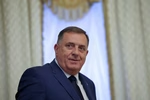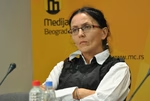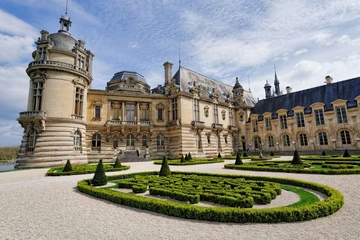
The Swedish Academy’s arguments defending the decision to award the 2019 Nobel Prize for Literature to Austrian writer Peter Handke were met with harsh words from the Chairman and Croat member of Bosnia’s Presidency, who on Friday accused the Academy itself of genocide denial.
The Academy came under heavy criticism from politicians, NGOs and intellectuals for bestowing a genocide denier with the Nobel Prize. Handke is known in the Balkans for his support for late Serbian leader Slobodan Milosevic, who died in his cell awaiting his verdict at the UN war crimes tribunal in The Hague for his role in the wars in former Yugoslavia.
Handke spoke at his funeral. He also openly supported Bosnian Serb leaders Radovan Karadzic and Ratko Mladic, both convicted of genocide committed in the eastern Bosnian town of Srebrenica in 1995, when more than 8,000 Muslim men and boys were executed under the watch of the United Nations.
Defending the Academy’s decision, the head of the Swedish Academy, Mats Malm, wrote in an article published by the Swedish daily Dagens Nyheter, that Handke had made "provocative, unsuitable and unclear comments in political questions," but that he never glorified bloodshed.
Malm cited one interview Handke gave to the Süddeutsche Zeitung where he said that the Srebrenica massacre was the worst crime against humanity in Europe since World War Two.
“The Academy ... has not found anything in his writing that constitutes an attack on civil society or on the respect for the equality of all people," Malm wrote.
“With regret, I have to conclude that despite our warning that you are risking glorification of genocide yourself, you have now directly denied the genocide by trying to justify Peter Handke’s award,” Presidency Chairman Zeljko Komsic wrote in his second letter to the Academy.
He called it the “most shameful episode in the history of the Swedish Royal Academy.”
The 2006 article Malm cited is from the point of view of international law only relevant in the context of denial of genocide, Zeljko Komsic wrote.
He reminded Malm that the international war crimes tribunal ruled in 2001 that what happened in Srebrenica was an act of genocide and that Handke told the Sueddeutsche Zeitung five years later that it was a massacre.
“I would like to remind you and the Swedish Academy of the fact that all genocide deniers, including war criminal Vojislav Seselj, just like Handke, but also unfortunately like the Swedish Royal Academy of Science, are always condemning “the Srebrenica massacre,” but not the genocide defined by international courts, which is nothing else but genocide denial,” Komsic said.
By taking Handke’s statement about what happened in Srebrenica serious, the Academy itself reiterated that position and in this way violated the European Parliament's Resolution about genocide in Srebrenica, although it is a member of the European Union which foresees punishment for genocide denial, Komsic wrote.
He again called upon the Academy to reconsider its decision, having in mind that the current Academy position is “in a not understandable way putting it on the side of anti civilisation and by denying the crime of genocide is trying to defend what from the human and civilisational standpoint is undefendable.”
Komsic ended his letter with greetings from the land where tears of the mothers of Srebrenica are sacred.
Kakvo je tvoje mišljenje o ovome?
Učestvuj u diskusiji ili pročitaj komentare





 Srbija
Srbija
 Hrvatska
Hrvatska
 Slovenija
Slovenija


























































